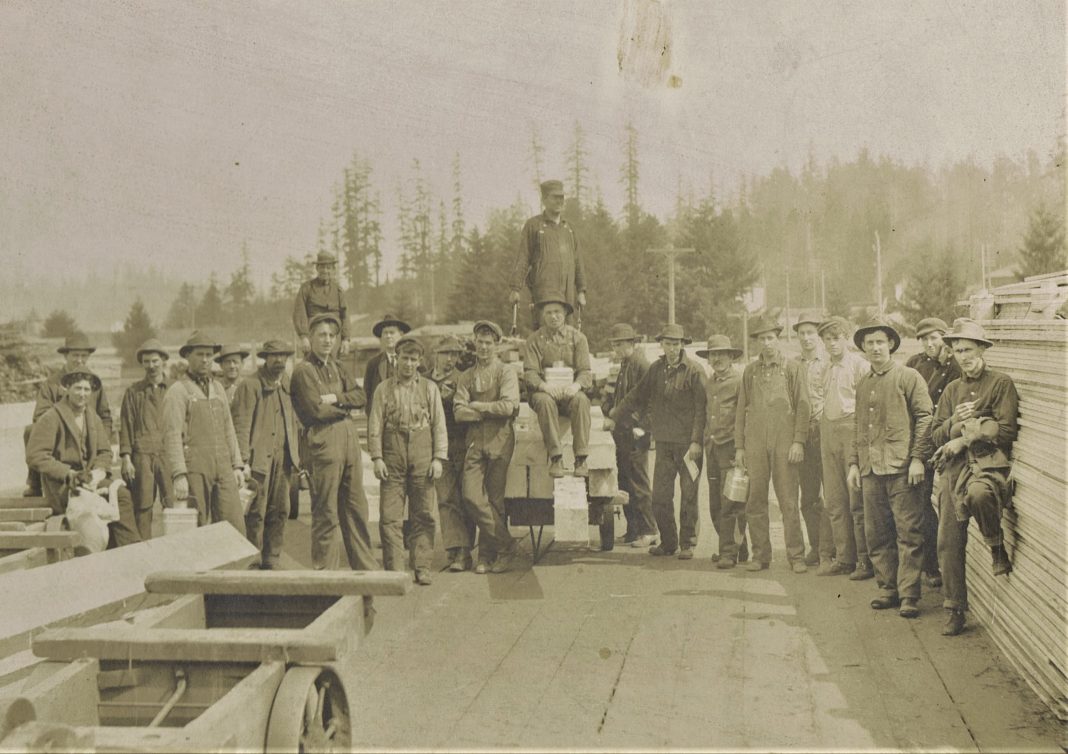Calling all Tenino history enthusiasts. A documentary titled “Tenino: Boomtown of the Old Northwest” is soon to be re-released online. The documentary was produced in 1973-1974 by Jay Evans in partnership with the Evergreen State College and the Washington Capital Museum. But this delightful film feels stylistically so much older as it captures the memories of a time that has passed out of living recollection.
 In November 2018, city councilman John O’Callahan sent a news clipping to the Tenino City Historian Richard Edwards with a special request. The clipping was from a November 2018 issue of The Tenino Independent, which regularly runs a section that looks back on historic Tenino events.
In November 2018, city councilman John O’Callahan sent a news clipping to the Tenino City Historian Richard Edwards with a special request. The clipping was from a November 2018 issue of The Tenino Independent, which regularly runs a section that looks back on historic Tenino events.
It reads: “45 years ago Tenino Documentary Nov. 7, 1973 – The South Thurston County Historical Society will have a special program at their meeting on Monday night, Nov. 12, featuring a film on Tenino’s early days and a presentation by an architect regarding the moving and refurbishing of the Tenino railroad depot for a museum.”
Rich Edwards was commissioned to find the film. His quest led him to Sean Lanksbury, Pacific Northwest & Special Collections Librarian, Washington State Library (WSL), Office of the Secretary of State. Lanksbury informed Edwards that WSL did have the 16mm film but it had “beginning evidence of vinegar syndrome, which means that the triacetate film base that the image is printed on is decaying.” Action would be required to salvage the film.
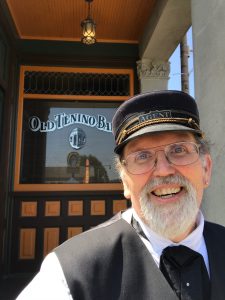
“So, we came up with a plan,” explains Edwards, “to have the film professionally digitized so it could be preserved, with WSL retaining copies of high-quality files, and Tenino could share the video on the web with the public as important historical material. It’s been a joint effort between the City of Tenino and the Washington State Library.”
The City of Tenino highly values the preservation of local history and didn’t hesitate to fund the conversion of the deteriorating film to a digital format.
“The City doesn’t just fill potholes and have cops,” says Mayor Wayne Fournier. “We actually take historic preservation very seriously.”
“Tenino: Boomtown of the Old Northwest” features historic photography of Tenino, highlighting much of the town’s prominent industry as well as all levels of its citizenry. The narrators are pioneers Frank and Edith Newell and Walter Scheel. Viewing the film feels like sitting down with one of these pioneers as they reminisce over old photos. Music from the Tenino Old Time Music Festival plays in the background.
Narrator Frank B. Newell (1890-1979) was born in Huron, South Dakota, and moved to the Skookumchuck Valley in 1896 and then to Tenino by 1910. Frank performed a number of jobs throughout his life. He was a planer at the Johnson and Clark Saw Mill in 1910, clerk in Peterson’s store in 1911, a confectioner in 1919 and the janitor at a high school in 1930-1940.
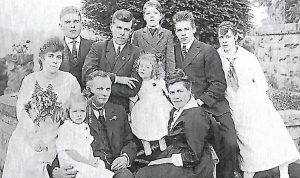
His wife Edith McClellan Newell (1889-1984) was born in Kansas and came to Thurston County in 1890. Her father, the entrepreneur Thomas McClellan, built Tenino’s first telephone system in 1905 and the first electrical power plant in 1906, as well as the first movie house. She also played in her own dance orchestra. Frank and Edith were married September 3, 1914.
Narrator Walter Scheel (1892-1984) was born in Tacoma to German immigrants Hans and Francis Scheel. Hans P. Scheel (nicknamed Horse Power Scheel) was a partner in the Hercules Quarry, which famously produced Tenino’s Big Blast. Walter followed in his father footsteps and became a quarryman. He apprenticed in San Francisco. While out hunting one day, Walter discovered granite up the Skookumchuck, which became Hercules No. 6. The legend goes that during an expedition of engineers and experts that went out to view the proposed granite quarry, each time they came to the river, Walter carried the men across piggyback. Walter also built the Hercules Quarry Office, which he later dismantled and moved to Sussex Avenue to become Tenino City Hall. So, he essentially built the same building twice. Like Frank, Walter tried his hand at many things. In 1910, he became a draftsman in Portland. By 1920, he was a carpenter in Seattle, a dairy farmer in Tenino in 1930 and a contractor in 1940.
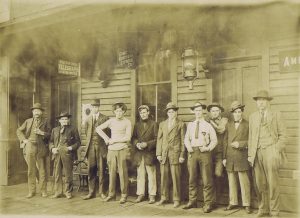
The motivation for producing a film of this nature was most likely due to two big events happening in Tenino at that time. First, the festivities and ceremony surrounding Tenino’s official designation as a Bicentennial Community in 1974. Mayor Ken Hedden received the official Bicentennial Flag during a program that featured all the pomp and circumstance of flag ceremonies, speeches, invocation, readings and a concert by the 13th Naval District Band. The film “Tenino” was played before and after the ceremony. The second event was the purchase and relocation of the Tenino Depot to become the Tenino Depot Museum.
According to the Daily Chronicle on June 15, 1974: “The main push of the Tenino Bicentennial Celebration is the moving of the train depot to the town park and remodeling it into a museum.
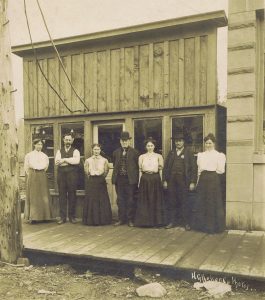
The town hopes to move the depot to the park in August and plans to dedicate the museum on July 4, 1976. It is a three-year project: relocate the depot in 1974, remodel it into a museum building in 1975 and install displays and dedicate it in 1976.”
The film “Tenino: Boomtown of the Old Northwest” will be once again be shown publicly at the Scatter Creek Winery & Brewing in Tenino on September 19, 2019. The mix and mingle portion of the evening begins at 6:00 p.m. Richard Edwards, Tenino City Historian, who worked so diligently to locate the film for the City of Tenino will speak at 7:00 p.m. with the film viewing to follow. Rich also recently published a book called “The Naming of Tenino.” You may pick up your signed copy at the event.








































